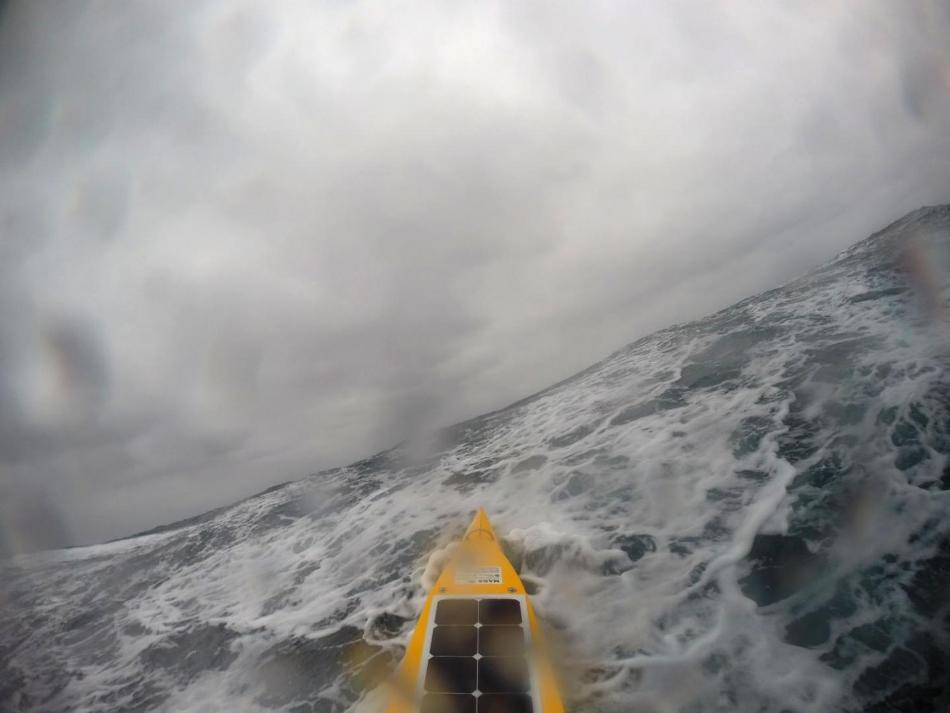Nov 24 2017
Researchers are working to develop an innovative device for measuring the amount of carbon dioxide in distant parts of the oceans around the globe.
 National Oceanography Centre vessel known as the Autonaut in rough seas. CREDIT: National Oceanography Centre.
National Oceanography Centre vessel known as the Autonaut in rough seas. CREDIT: National Oceanography Centre.
The Calibrated pCO2 in Air and Surface Ocean Sensor, or CaPASOS, developed by the University of Exeter and the National Oceanography Centre, will be transported to places including the Southern Ocean, through unmanned robotic boats.
Although ship-borne sensors collect data in different locations across the globe, drastic conditions in certain oceans, specifically during the winter season, restrict the movement of ships to such places.
Grants worth £521,000 were awarded for Exeter’s portion of the project, which include grants worth £425,000 from the Natural Environment Research Council, reported a week earlier.
Climate change is largely being driven by burning fossils fuels, but only about half of the carbon dioxide released ends up in the atmosphere, the other half is being absorbed, it is believed, in approximately equal amounts by ‘carbon sinks’—vegetation on land and uptake by the ocean. The ocean uptake slows climate change—which is of great value and is the focus of intense research—but that process also causes ocean acidification. While carbon dioxide levels in some parts of the oceans are well monitored, there are other very large regions—the Indian, South Pacific and Southern oceans, for example—where we have woefully insufficient data. There are almost no data for the Southern Ocean in winter, and this is a region we think is particularly important for carbon dioxide uptake.
Professor Andrew Watson affiliated to the University of Exeter.
The CaPASOS device will be ascertaining partial pressure of carbon dioxide, or pCO2, in the surface and air around the ocean. Both the values are crucial for computing the movement of CO2 between the sea and air.
The device will be transported through remotely operated, unmanned vessels, many of which are hitherto in usage at the National Oceanography Centre.
The technical challenge is to adapt the successful principles of the instruments mounted in ships or large buoys, where space and power are not limiting factors, to achieve the same high accuracy with small space and power footprint, long endurance and resistance to violent motion—all of which will be needed on an unmanned vessel, we will achieve this by bringing together the extensive experience that the University of Exeter group has in operating ship-based CO2 systems over 20 years, with improvements in engineering, utilising the experience and expertise of the National Oceanography Centre’s Technology and Engineering groups.
Professor Andrew Watson affiliated to the University of Exeter.
Professor Watson, Mike Boniface, Dr Ute Schuster, Dr Witek Tatkiewicz, and Jessica Thorn are the researchers included in the Exeter team performing the research.